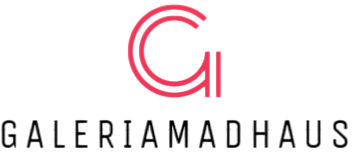Darknet marketplaces have long been associated with illicit activities, from the sale of illegal goods to confidential data trading. However, in recent years, these platforms have increasingly focused on enhancing user security. This shift comes as both vendors and buyers seek to navigate the risks associated with operating in a largely unregulated online environment. As the demand for anonymity and protection of sensitive information grows, these marketplaces have taken steps to address concerns around cyber threats, fraud, and privacy breaches. The primary reason for this focus on security lies in the growing awareness of the risks involved in darknet transactions. Users of these platforms are often vulnerable to attacks, ranging from identity theft to financial fraud. With personal and payment data at high risk, enhanced security measures have become essential to foster trust among users. For instance, encrypted communication channels are now standard features, ensuring that interactions between buyers and sellers are shielded from third-party surveillance or interference.

In addition to encryption, marketplaces are also employing advanced authentication methods to prevent unauthorized access. Multi-factor authentication MFA is one such measure, which requires users to confirm their identity through multiple verification steps. This additional layer of security reduces the likelihood of account compromise and protects sensitive information from being accessed by malicious actors. Through this approach, users can rest assured that their activities and financial transactions are being safeguarded from hackers. Another important aspect of Kerberos url security is the integration of privacy-focused technologies. The use of anonymous payment methods, such as cryptocurrencies, has become commonplace. These digital currencies, particularly those designed with privacy in mind, provide an extra layer of confidentiality, ensuring that transactions cannot be traced back to the individuals involved. This has significantly reduced the likelihood of financial tracking and helped users maintain their anonymity throughout their dealings. Furthermore, the implementation of robust data protection protocols is critical in mitigating the risks associated with data breaches.
Many darknet platforms have adopted end-to-end encryption for all stored data, meaning that even if an attacker were to gain access to the marketplace’s servers, the data would remain unreadable without the decryption key. This is particularly important for personal data, which could otherwise be exploited for malicious purposes. To further bolster user security, many platforms now implement rigorous vetting processes for both vendors and buyers. This helps ensure that participants are legitimate and have no previous history of engaging in fraudulent or harmful activities. These verification processes are designed to minimize the risk of scams and ensure that users can trust the individuals they are interacting with. By promoting a safer and more trustworthy environment, these platforms aim to build a strong community of users who can operate with greater confidence. Additionally, security measures are continually evolving to adapt to new threats and vulnerabilities. As cybercriminals develop more sophisticated techniques, darknet marketplace operators are investing in research and development to stay ahead of these risks.
